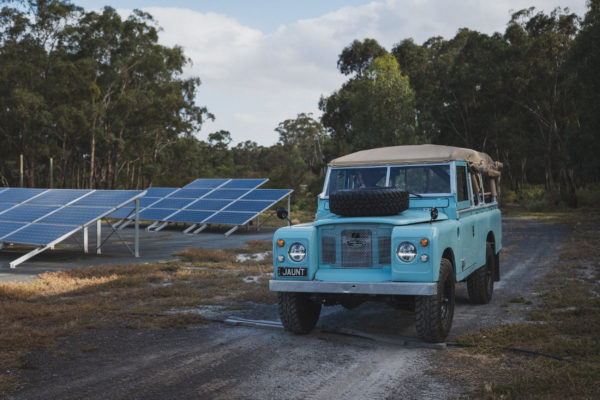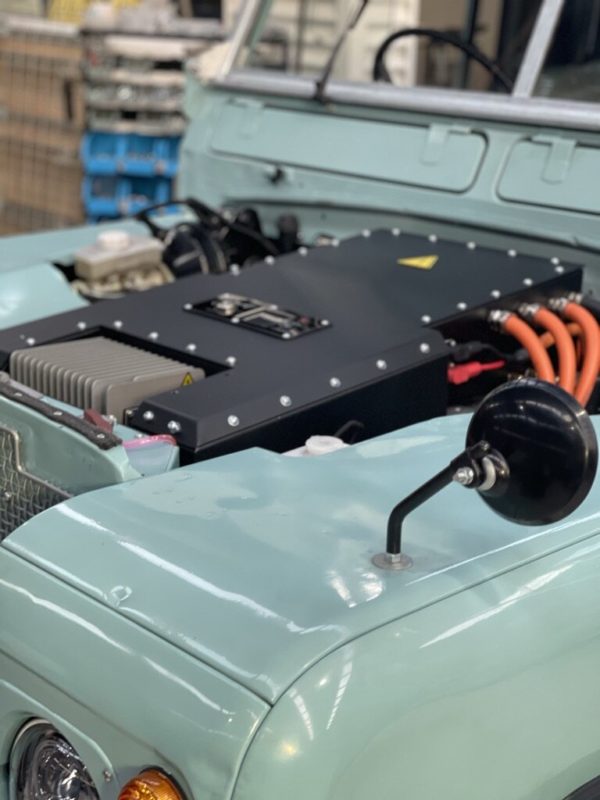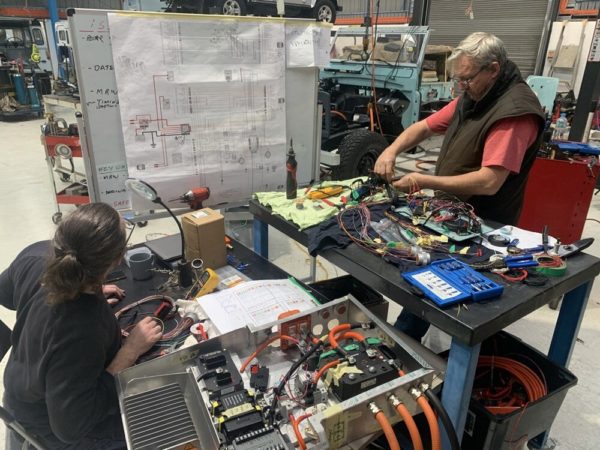Jaunt Motors, a Melbourne startup specialising in converting classic Land Rovers into electric vehicles, is partnering with fellow conversion specialists, Zero EV, based in the UK.
After working together for more than a year, the two companies will merge to form Fellton, a design, development and manufacturing company for bolt-in electric vehicle (EV) kits.

The partnership will grow the scale of both businesses, which new Fellton CEO Chris Hazell says will see expansion beyond Australia and the UK into North America.
In a company statement, Hazell added Fellton will be bringing production facilities online “very soon” to allow companies across the continents to buy bolt-in systems which allow any car to become electric.
“As we grow the number of models we support, and supply systems and components to other workshops, you can transform any car, from any era into a reliable, joyful drive with comparable range and charging speed to a new EV,” Dave Budge, cofounder of Jaunt and now Head of Design at Fellton, said on LinkedIn.
Jaunt has been specialising in ‘up-cycling’ 1958 to 2015 Land Rovers into EVs using Tesla battery packs – an exercise which typically costs $125,000 (USD 80,000).

Speaking to The Guardian, Budge said the biggest obstacle the startup has encountered so far is awareness. “Most people don’t know that this is even possible.”
Electric vehicle uptake in Australia has lagged the rest of the world, with EVs accounting for just 3.39% of total new car sales in 2022. That said, this figure is a 65% boost from the year before – demonstrating interest is there.
The slow uptake in Australia has largely been attributed to the country’s lack of fuel efficiency standards, which are commonplace in the rest of the developed world, with Australia and Russia the only outliers. Until recently, Australian governments offered very limited rebates or incentives to drive EV uptake – though the tone here has changed notably in 2022.
While still expensive, EV conversion is an interesting proposition – especially given the fact a significant amount of a vehicle’s CO2 emissions come from their manufacturing.

This content is protected by copyright and may not be reused. If you want to cooperate with us and would like to reuse some of our content, please contact: editors@pv-magazine.com.









By submitting this form you agree to pv magazine using your data for the purposes of publishing your comment.
Your personal data will only be disclosed or otherwise transmitted to third parties for the purposes of spam filtering or if this is necessary for technical maintenance of the website. Any other transfer to third parties will not take place unless this is justified on the basis of applicable data protection regulations or if pv magazine is legally obliged to do so.
You may revoke this consent at any time with effect for the future, in which case your personal data will be deleted immediately. Otherwise, your data will be deleted if pv magazine has processed your request or the purpose of data storage is fulfilled.
Further information on data privacy can be found in our Data Protection Policy.